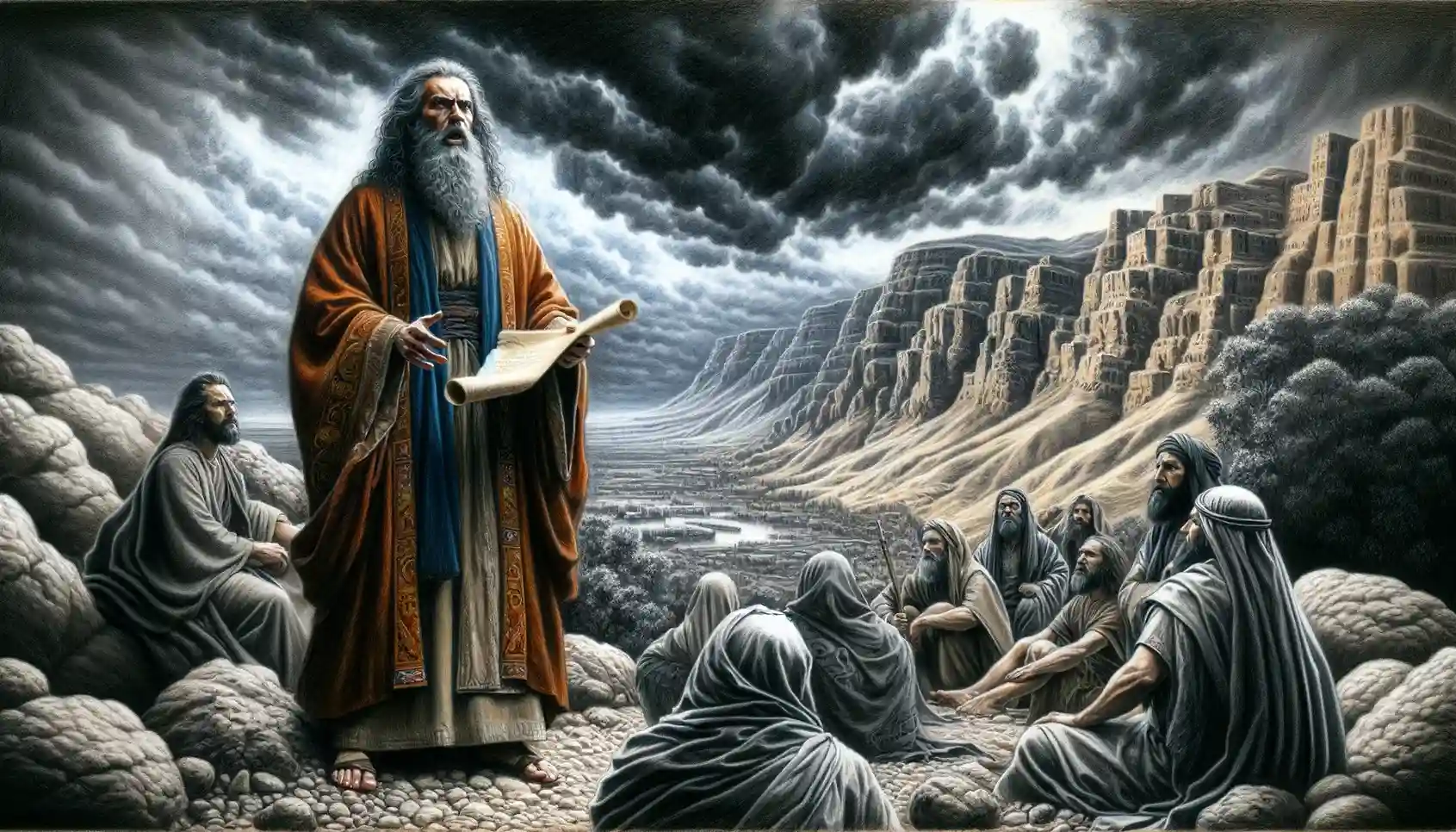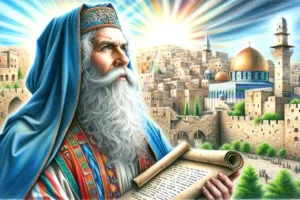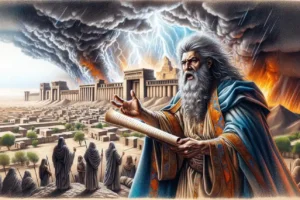
Obadiah: Prophet who Prophesied Against Edom
Obadiah, one of the twelve minor prophets in the Hebrew Bible, delivered a prophetic message against Edom. His short but powerful book emphasizes divine justice, judgment against Edom for its actions against Israel, and the ultimate triumph of God’s kingdom.
Quick Facts
- Minor Prophet: Obadiah is one of the twelve minor prophets.
- Shortest Old Testament Book: The Book of Obadiah contains only one chapter.
- Judgment Against Edom: His prophecy focuses on the impending judgment against Edom.
- Historical Context: Likely prophesied after the Babylonian destruction of Jerusalem in 586 B.C.
- Reason for Judgment: Edom’s cruelty and betrayal against Judah during its downfall.
- Theme of Divine Justice: Emphasizes God’s justice and the restoration of Israel.
- Ultimate Triumph: Foretells the ultimate triumph of God’s kingdom over all nations.
- Day of the Lord: References the “Day of the Lord,” a time of divine reckoning and judgment.
Historical and Cultural Context
The prophecy of Obadiah is believed to have been delivered shortly after the destruction of Jerusalem by the Babylonians in 586 B.C. During this tumultuous period, the Edomites, descendants of Esau and long-standing rivals of the Israelites, took advantage of Judah’s vulnerability. They participated in the looting and mistreatment of the Judeans, exacerbating their suffering.
Judgment Against Edom
The central theme of Obadiah’s prophecy is the impending judgment against Edom. He condemns Edom for its arrogance, violence, and betrayal. The Edomites are criticized for standing aloof during Judah’s distress, gloating over its downfall, and even capturing and killing those who fled (Obadiah 1:10-14). Obadiah declares that Edom will be repaid for its deeds and that its pride will be brought low.
Divine Justice and Retribution
Obadiah’s message underscores the principle of divine justice and retribution. He assures that the “Day of the Lord” is near for all nations, and as Edom has done, so it will be done to them (Obadiah 1:15). This day of reckoning will see the enemies of Israel judged and punished, reinforcing the idea that God holds all nations accountable for their actions.
Despite the focus on judgment, Obadiah’s prophecy also includes a message of hope and restoration for Israel. He foretells that the exiles of Israel will return and possess their land, including territories of Edom (Obadiah 1:17-21). This restoration signifies the reversal of fortunes and the re-establishment of Israel under God’s rule.
Ultimate Triumph of God’s Kingdom
Obadiah concludes with a vision of the ultimate triumph of God’s kingdom. He proclaims that “the kingdom will be the Lord’s” (Obadiah 1:21), emphasizing the sovereignty of God over all nations. This eschatological perspective looks forward to a time when God’s justice will prevail, and His people will be fully restored.
Theological Themes
- Divine Justice and Retribution: Obadiah’s prophecy highlights the inevitability of divine justice and the principle of retributive justice.
- Pride and Humility: The fall of Edom serves as a warning against pride and arrogance.
- Hope and Restoration: The promise of Israel’s restoration underscores God’s faithfulness to His covenant people.
- Sovereignty of God: The ultimate triumph of God’s kingdom affirms His sovereignty over all nations and history.
Legacy and Impact
Obadiah’s prophecy, though brief, has had a significant impact on the theological understanding of divine justice and the fate of nations. His condemnation of Edom’s actions and assurance of God’s justice provide a powerful reminder of the moral order governed by divine law. The prophecy’s eschatological vision of God’s kingdom continues to inspire hope for ultimate justice and restoration.
Conclusion
Obadiah, the prophet who prophesied against Edom, delivered a powerful message of divine justice and retribution. His prophecy condemns Edom’s betrayal and cruelty, promises the restoration of Israel, and looks forward to the ultimate triumph of God’s kingdom, emphasizing themes of justice, humility, and hope.
Leave A Reply
You must be logged in to post a comment.




1 Comment
🙏